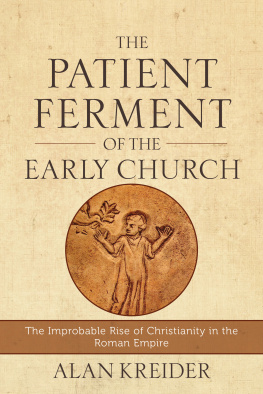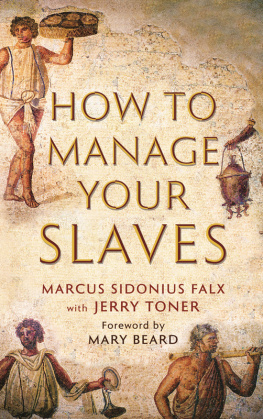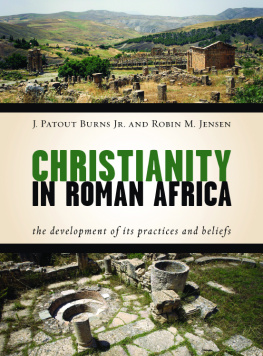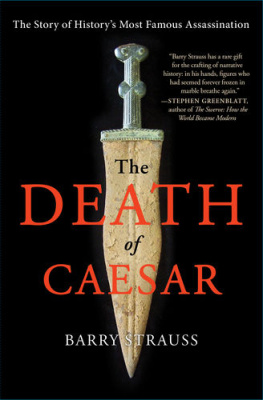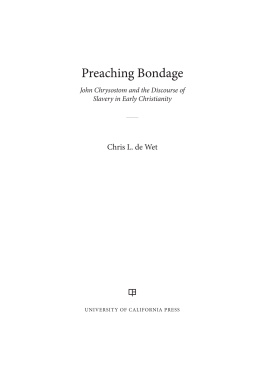Michael Flexsenhar III - Christians in Caesar’s Household: The Emperors’ Slaves in the Makings of Christianity
Here you can read online Michael Flexsenhar III - Christians in Caesar’s Household: The Emperors’ Slaves in the Makings of Christianity full text of the book (entire story) in english for free. Download pdf and epub, get meaning, cover and reviews about this ebook. City: University Park, year: 2019, publisher: Penn State University Press, genre: History. Description of the work, (preface) as well as reviews are available. Best literature library LitArk.com created for fans of good reading and offers a wide selection of genres:
Romance novel
Science fiction
Adventure
Detective
Science
History
Home and family
Prose
Art
Politics
Computer
Non-fiction
Religion
Business
Children
Humor
Choose a favorite category and find really read worthwhile books. Enjoy immersion in the world of imagination, feel the emotions of the characters or learn something new for yourself, make an fascinating discovery.
- Book:Christians in Caesar’s Household: The Emperors’ Slaves in the Makings of Christianity
- Author:
- Publisher:Penn State University Press
- Genre:
- Year:2019
- City:University Park
- Rating:5 / 5
- Favourites:Add to favourites
- Your mark:
Christians in Caesar’s Household: The Emperors’ Slaves in the Makings of Christianity: summary, description and annotation
We offer to read an annotation, description, summary or preface (depends on what the author of the book "Christians in Caesar’s Household: The Emperors’ Slaves in the Makings of Christianity" wrote himself). If you haven't found the necessary information about the book — write in the comments, we will try to find it.
In this volume, Michael Flexsenhar III advances the argument that imperial slaves and freedpersons in the Roman Empire were essential to early Christians self-conception as a distinct people in the Mediterranean and played a multifaceted role in the making of early Christianity.
Scholarship in early Christianity has for centuries viewed Roman emperors slaves and freedmen as responsible for ushering Christianity onto the world stage, traditionally using Pauls allusion to the saints from Caesars household in Philippians 4:22 as a core literary lens. Merging textual and material evidence with diaspora and memory studies, Flexsenhar expands on this narrative to explore new and more nuanced representations of this group, showing how the long-accepted stories of Christian slaves and freepersons in Caesars household should not be taken at face value but should instead be understood within the context of Christian myth- and meaning-making. Flexsenhar analyzes textual and material evidence from the first to the sixth century, spanning Roman Asia, the Aegean rim, Gaul, and the coast of North Africa as well as the imperial capital itself. As a result, this book shows how stories of the emperors slaves were integral to key developments in the spread of Christianity, generating origin myths in Rome and establishing a shared history and geography there, differentiating and negotiating assimilation with other groups, and expressing commemorative language, ritual acts, and a material culture.
With its thoughtful critical readings of literary and material sources and its fresh analysis of the lived experiences of imperial slaves and freedpersons, Christians in Caesars Household is indispensable reading for scholars of early Christianity, the origins of religion, and the Roman Empire.
Michael Flexsenhar III: author's other books
Who wrote Christians in Caesar’s Household: The Emperors’ Slaves in the Makings of Christianity? Find out the surname, the name of the author of the book and a list of all author's works by series.


